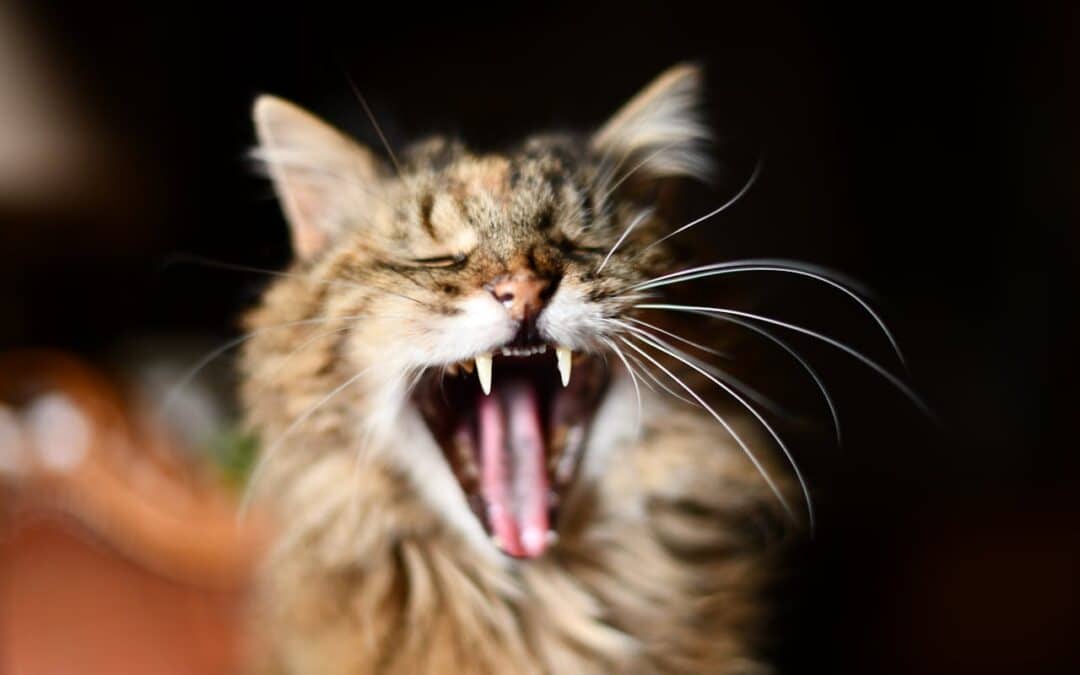When you think about keeping your pet healthy, the first things that come to mind are probably food, exercise, vaccinations, and vet visits. Dental care doesn’t always make the list—but it should.
Dogs and cats can suffer from the same dental problems we do: plaque buildup, gum disease, and even painful tooth infections. The difference is, they can’t tell us when something’s wrong. Most pets will keep eating or playing like normal, even when they’re dealing with sore gums or aching teeth.
That’s why dental health is about more than keeping your pet’s breath fresh. It also plays a big role in their comfort, happiness, and overall health.
Why Dental Health Is So Important
When bacteria build up on the teeth and gums, it forms a sticky plaque that eventually hardens and turns into tartar. The bacteria can cause tooth and gum infections that can spread through your pet’s bloodstream to other parts of the body. These infections put unnecessary strain on organs like the heart, kidneys, and liver.
Poor dental health can also lead to:
- Tooth pain that makes eating difficult
- Bad breath that doesn’t go away
- Painful infections that cause tooth loss
- Loss of appetite and nutritional deficiencies
And here’s the thing: pets rarely complain. A dog may still wag its tail at dinner, and a cat may nibble a few bites of kibble, but that doesn’t mean their mouth is pain-free.
Are Teeth Cleanings Really Necessary for Cats and Dogs?
Yes. Professional cleanings at the vet go far beyond what you can do at home. Cleanings include scaling under the gumline, polishing the teeth, and checking for hidden problems like cavities, cracked teeth, and signs of gum disease.
If you skip dental cleanings and tooth brushing, the problems may not show up right away. But over time as plaque builds up, the gums will become infected and inflamed, and then the teeth will loosen and fall out. And plaque builds up quickly. By age three, most dogs and cats already show some signs of dental disease.
If you don’t take care of your pet’s teeth, they can face pain, infections, and, in many cases, preventable health problems that become much harder to treat later on.
What You Can Do at Home
Routine teeth cleanings are important, but daily habits make a big difference too. Here’s what you can do at home to keep your pet’s teeth clean between vet visits.
- Brush regularly. Daily brushing the gold standard for both dogs and cats.
- Using the right products. Always use products made for pets—never use people toothpaste.
- Offering dental chews or treats. They’re not a replacement for brushing, but they can help reduce plaque.
- Watching for warning signs. Dropping food, pawing at the mouth, red gums, or unusually bad breath may point to tooth pain or other issues that need a vet’s attention.
Just like you take preventive measures between your own dental visits, taking a few small steps at home will help you protect your pet’s teeth.
Healthy Teeth = Happy Pets
Dental care isn’t just about avoiding stinky breath; it’s about keeping your pet comfortable, healthy, and full of energy. A little prevention now means fewer problems later..
If you’re not sure whether your dog or cat is due for a dental cleaning, or you’ve noticed symptoms like bad breath, yellow teeth, or changes in eating habits, you should see a vet. At Anasazi Animal Clinic, we’ll check on your pet’s teeth, gums, and entire body so you can feel confident they are getting the care they need. Contact us to make an appointment today.
Photo by Marie Lemaistre on Pexels used with permission under the creative commons license for commercial use 9/6/2025

